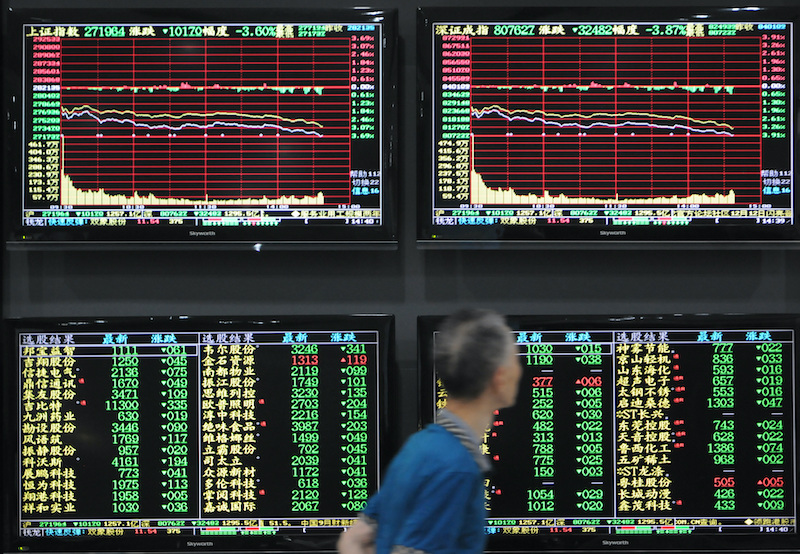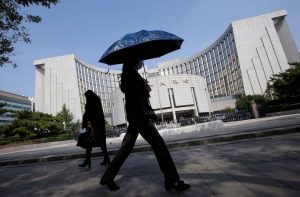Chinese property bonds are being shunned by fund managers worried about the deepening crisis in the country’s real estate sector.
Traders have cut their holdings by half or even more after their poor performance blew a deep hole in their funds’ profits.
According to Refinitiv data, 204 out of 242 dollar-denominated bonds issued by Chinese property firms are trading well in distressed territory below 50 cents on the dollar, hammering funds and limiting patience to wait for a recovery.
With angry buyers of unfinished apartments boycotting mortgage payments, new sales and home prices sliding and rescue efforts so far doing little to alleviate developers’ cash crunch, several are opting to cut their losses.
Also on AF: China Says Licences Needed for Mapping by ‘Smart Cars’
The five largest Asian high-yield funds cut their holdings in Chinese property bonds to 16.4% at the end of June, compared with 27.6% at the end of last year, according to Morningstar.
The BGF Asian High Yield Bond D2 USD fund, for example, cut its exposure in Chinese real estate bonds to 14.7% at the end of June from 27.1% on December 31.
The PIMCO GIS Asia High Yield Institutional USD and Fidelity Asian High Yield A-Acc-EUR also trimmed their holdings to 11.9% and 22% from 22% and 31.7%, respectively.
“As the liquidity crisis exacerbates … many people are now reluctant to hold on to their property bonds,” said Kunal Sawhney, chief executive officer of research firm Kalkine Group.
“Even top institutional investors are trimming their positions in high-yield Chinese dollar bonds as investor confidence begins to wane since the crisis began.”
Patrick Ge, a research analyst at Morningstar, said a combination of lower bond supply and defaulted bonds falling out of indexes also contributed to the cut in Chinese property bond holdings.
“We’ve seen several managers diversifying away from China property and finding opportunities in other Asian high-yield sectors such as Indian renewable companies and Indonesian property space,” he said.
China Lending Rate Cut
Offshore bonds have fallen 59.4% on average this year and Bank of America calculated a total of $52 billion in defaults. Mutual funds exposed to China’s property bonds have taken heavy losses.
The UBS (Lux) BS Asian High Yield $ K-1-acc fund has plummeted 29% this year, while HSBC GIF Asia High Yield Bond XC and Fidelity Asian High Yield A-Acc-EUR have lost about 24% and 21%, respectively.
In efforts to revive the economy, China has cut its benchmark lending rate and officials have repeatedly made promises of further assistance.
However, analysts said the actual financial support to developers is limited, and without a turnaround in market confidence they will not be able to fix cash flow problems.
“We need to see pick-up in pre-sales and subsequently a reopening of the capital market to conclude if there is a sector turnaround,” Agnes Wong, head of APAC credit strategy at BNP Paribas, said.
However, she said it would be hard for things to get worse. “We see limited downside from here,” she said.
- Reuters with additional editing by Sean O’Meara
Read more:
China’s Economy Stumbles as Property, Covid Struggles Rage
China Regulator Seen Checking Banks’ Property Loan Exposure
Asia-Focused Funds Snared by Deepening China Property Crisis
























